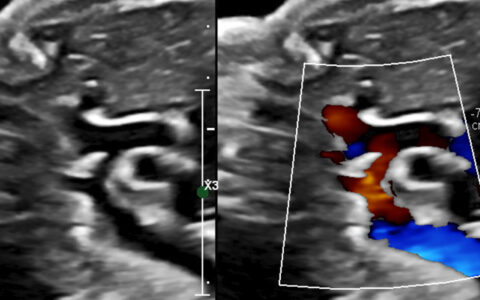Though advances in inflammatory disease treatment have improved outcomes, many patients find themselves dealing with a long list of side effects from their condition or treatments that require specialized care. A growing awareness of the important link between inflammation and cardiovascular health has spurred development of the field of cardio-rheumatology.
Leading Vanderbilt University Medical Center’s cardio-rheumatology program is Tania Ruiz, MD, an assistant professor of medicine and one of a select few subspecialists in the country. Since assuming leadership of Vanderbilt’s program in November 2024, Ruiz has been expanding its services and boosting awareness, sparking a high volume of referrals from primary care providers, cardiologists, rheumatologists, dermatologists and other specialists. The cardio-rheumatology program lives under the umbrella of Vanderbilt Health’s Women’s Heart Center. This is because systemic inflammatory disease predominantly affects women.
“Our program arose out of the opportunity to better address patients’ cardiovascular risk, whether their risk is specifically from an autoimmune diagnosis, or due to some of the medications to treat autoimmune disease,” Ruiz said.
Inflammation and the Cardiovascular System
As a subspecialty, cardio-rheumatology focuses on the impact of inflammation on the cardiovascular system. It involves understanding the cardiovascular effects of immune‐mediated inflammatory diseases, such as rheumatoid arthritis or systemic lupus erythematosus, as well as cardiology-specific inflammatory conditions like idiopathic recurrent pericarditis.
“Until recently, treatments targeting the immune system for cardiovascular conditions were not available,” Ruiz said, “but this has started to change with the approval of new agents, including targeted therapies such as immunomodulators.”
According to Ruiz, knowledge of how these therapies affect the cardiovascular system remains limited — but it is becoming more essential. She says cardio‐rheumatologists are uniquely positioned to bridge this gap.
An Integrated Model of Care
At VUMC, patients are offered integrated care where a cardiologist and rheumatologist provide a coordinated assessment. The goal of the visit is a comprehensive cardiovascular health assessment and education for lifestyle modification in the context of the patient’s condition.
“Our dedicated program offers logistical advantages in the coordination of care, as well as an opportunity for structured data collection,” Ruiz said. “When clinically indicated, we also perform non-invasive cardiac and vascular imaging to inform the assessment of cardiac manifestations of inflammatory diseases.”
“Our dedicated program offers logistical advantages in the coordination of care, as well as an opportunity for structured data collection.”
Several clinical variables are collected, potentially including inflammatory markers and cardiac biomarkers. When indicated, a transthoracic echocardiogram is obtained for evaluation of cardiac structure and function as well as an estimate of pulmonary arterial pressure.
Additional cardiac testing, such as a cardiac MRI, is obtained as clinically appropriate for each individual patient and follow-up is scheduled on a case-by-case basis. For example, one patient might need a shorter interval of follow-up with their rheumatologist and longer follow-up with their cardiologist, or vice versa.
“Our coordinated clinical evaluation is tailored to the needs of the patient based on their rheumatologic diagnosis, symptoms, cardiac risk assessment or presence of cardiovascular abnormalities found incidentally,” Ruiz said.
Facilitating Timely Referrals
While still in its initial phases, the program is supported by a referral algorithm developed by Ruiz and her team. The algorithm emphasizes the importance of timely referrals and assessment in patients with systemic inflammatory disease but without cardiac symptoms or standard indications for further cardiac testing.
On the research side, Ruiz is building a data repository to better understand how to integrate the information provided by these assessments to tailor therapeutic decisions and implement risk mitigation strategies. In collaboration with rheumatology, she is developing a cloud-based imaging repository to longitudinally quantify and standardize these assessments in patients with systemic sclerosis.
“Our program is growing rapidly, and we have a lot of exciting projects in the works,” Ruiz said. “I chose cardio-rheumatology because it allows me to care for a unique patient population in a field that it is complex, rewarding and continuously evolving.”







